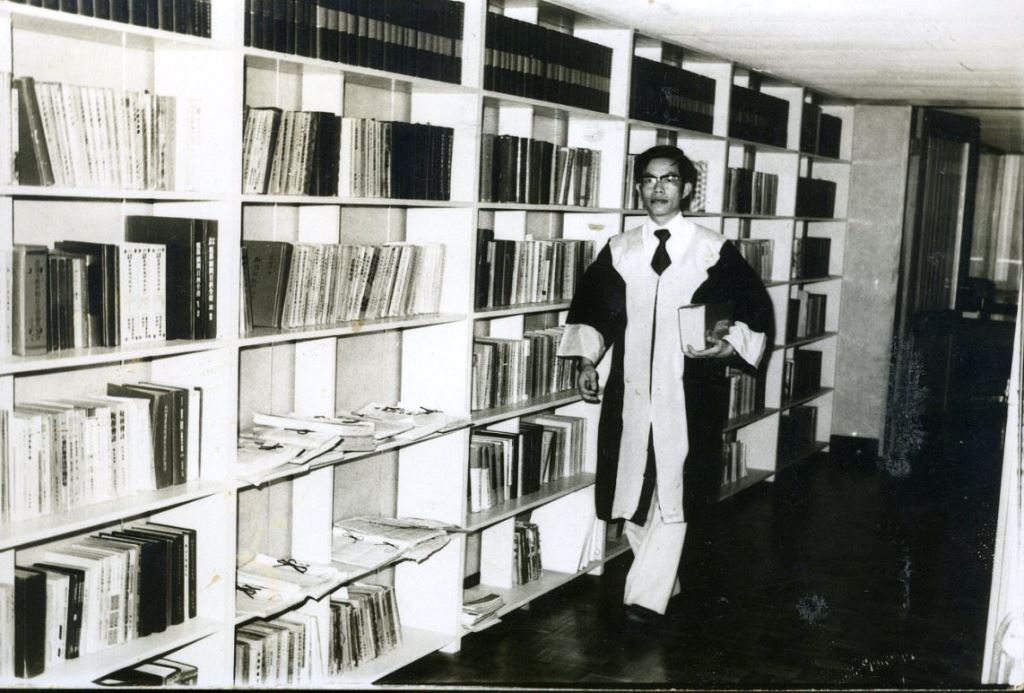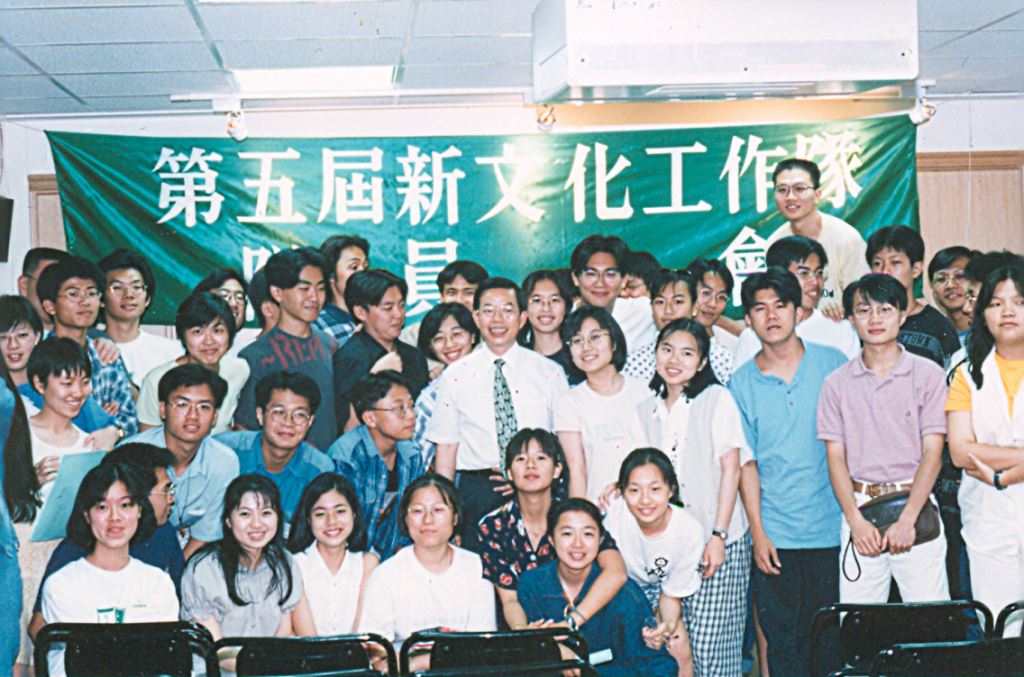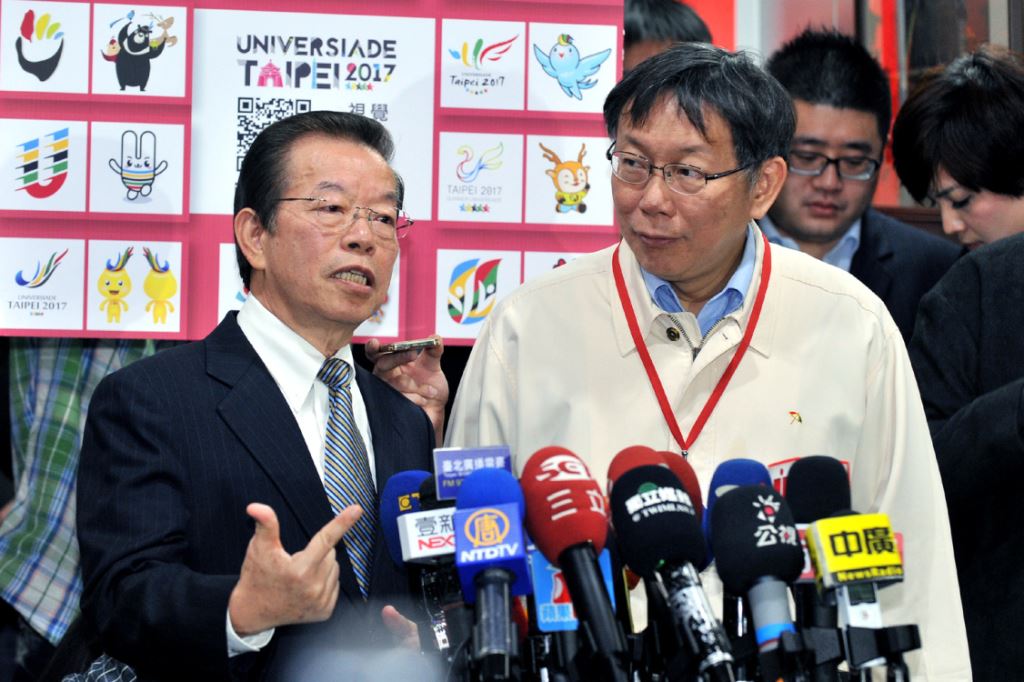Biography
Frank (Chang-ting) Hsieh was born in 1946 in Taipei City. He has been a human rights lawyer, a Taipei City Councillor, a Legislator, Kaohsiung Mayor and a premier. He was one of the founding members of the first successful opposition party in Taiwan (Republic of China, R.O.C.), the Democratic Progressive Party (DPP) and has been the party leader, the running mate of the DPP presidential candidate in the first presidential election in Taiwan (1996) and the 2008 presidential candidate. Hsieh has played a significant role in almost every historic moment in Taiwan’s political development and has the most comprehensive experience amongst all the political leaders in Taiwan.
Hsieh qualified as a lawyer in 1969, during the 3rd year of his undergraduate study at National Taiwan University. Only 7 out of over 1000 applicants passed the bar exam in that year and he came top in that cohort. After graduation, he won a full scholarship from the Japanese government and started his postgraduate study on jurisprudence in Kyoto University, Japan. He gained a Masters but had to return to Taiwan in 1976, just before finishing his doctorate thesis due to his father’s terminal illness. Nevertheless, his observation and experience in Japan profoundly influenced his political views and conduct.
Hsieh practised as a lawyer upon his return and started representing political dissidents against the one party rule of the Chinese Nationalist Party (KMT). He first got involved as a human rights lawyer after the Kaohsiung/Formosa Incident in 1979. During this trial, Hsieh was pivotal in turning individual arguments into the defence of the entire democratic movement, highlighting the meaning and the significance of the movement. He later represented the widow of Henry Liu, assassinated by the KMT government for writing an unauthorised biography on the then KMT President, Chiang Ching-kuo, in her brave lawsuits against the head of the KMT Intelligence Bureau and the gang leaders who carried out the assassination.

As most of the opposition political elites were imprisoned after 1979, Hsieh entered politics with other defence lawyers in 1981. Being quick and witty, he soon became one of the most popular opposition figures and named ‘the best speaker in opposition’ by supporters. He won a seat in the Taipei City Council in 1981. In 1986, the Democratic Progressive Party was established to the KMT government’s surprise. Hsieh was one of the founding members of the Democratic Progressive Party, giving the party its name and drafting the party constitution.
After the DPP was established, Taiwan was still under the martial law and political parties other than the KMT were strictly prohibited. Hsieh demonstrated unwavering courage and superb abilities in coordinating and mobilising protesters by leading most of the major campaigns for freedom and democracy as the DPP ‘Director of Social Movements’.
In 1989, Hsieh moved on to serve as an elected legislator for two terms, until 1995. In his attempt to increase youth participation in public affairs and encourage innovative and forward thinking, he founded the New Culture Foundation in 1992 to promote, as its name suggests, a new culture in Taiwan. The Foundation holds a summer camp and several events throughout the year, training undergraduate and postgraduate students in social issues and political processes. Over the years, the Foundation has produced many excellent political aides and representatives. For example, Yao-wen Lin, the former Head of Information Bureau at Kaohsiung City Government; Tian-lin Chao, current legislator; Jhao-syong Ruan, current Taipei City Councillor and DPP spokesperson; the former DPP Department of Women’s Development Director, Jia-Ling Chang; current Taipei City Government Spokesperson, Sidney Lin; the former DPP Department of Social Development Director, Ho-ching Li, current Taipei City Councillor and DPP spokesperson, Min-sheng Wang and Guang-hsuen Chen, current Miao-li County Councillor.

In 1994, during his second term as a legislator, Hsieh ran in the party preliminary election for the first Taipei City mayoral election. Despite his solid preparation for the election and having the same support level as the other contender, Chen Shui-bian, Hsieh decided to withdraw from the primary after the first stage and supported Chen in order to reduce internal frictions and maximise the chance of a DPP win. He also became Chen’s campaign manager immediately after. During the campaign, Hsieh started a series of ‘daily question’ to the strongest candidate, the New Party’s Jaw Shao-kang. His questions were all spot on and quickly put Jaw in defence. This gave Chen a free hand to focus on his vision for Taipei and build rapport with the public. To date, Hsieh’s ‘Daily Question’ and the way in which it was executed are regarded as a classic in Taiwan’s political history.
The following year, Hsieh became the running mate of Prof. Peng Ming-min, the DPP presidential candidate for the general presidential election in 1996. This was the first general election in the Taiwanese history and the incumbent KMT President Lee Teng-hui won.
After this election, Hsieh decided to take on a different challenge. He therefore left his base, Taipei City, to run for the Kaohsiung Mayor in the 1998 election. At that time, Kaohsiung was a KMT stronghold and Hsieh had to challenge the incumbent KMT mayor, Wu Den-yi. Without any prior connections to the city, Hsieh did a lot of research and groundwork.
In 1997, during his mayoral campaign, the South African military attaché, McGill Alexander and his family, were taken hostage in their own home in Taipei by a heavily armed serial killer on the run. The police were unable to get the offender to release the hostages for a number of days and they were ready to use firearms even with the hostages inside. As the offender said that he was only willing to negotiate with Hsieh alone, because he considered Hsieh the fairest lawyer and the only one he could trust, the police agreed to meet this demand. Hsieh immediately attended the scene and chose to enter without a bulletproof jacket. This gained the offender’s trust. The offender expressed his displeasure about the alleged police torture of his wife. Hsieh promised to find his wife and brother-in-law good legal counsel. As a result, the offender released all of the hostages and surrendered. Hsieh successfully diffused an international incident and prevented further damage. The details of this incident are in McGill Alexander’s book, ‘Hostages in Taipei’.
In 1998, contrary to wide spread expectation, Hsieh was elected and became the first DPP Kaohsiung Mayor. During his two terms as the mayor, he transformed the city with innovative thinking, thorough planning and effective use of resources. He turned Kaohsiung from what National Geographic’s Megacities described an ‘industrial wasteland’ and often referred to by Taiwanese as a ‘cultural desert’ into a beautiful modern city. He cleaned up the (in)famous Love River, built the underground and planned the tramlines that will be fully completed and open to the public in 2019. Formosa Boulevard Station and Central Park Station, have been selected twice as the most beautiful underground stations (within top 5) in the world in recent years. He also brought the World Games 2009 to Taiwan despite China’s constant sabotages of Taiwan’s international participation. This was the first international sports event Taiwan has ever won and it was seen as a historical breakthrough. This transformation is popularly referred to as ‘the Kaohsiung Miracle’. The solid foundation Hsieh laid for the city has significantly improved the residents’ quality of life and self-confidence, which turned Kaohsiung into a DPP stronghold.
Hsieh became the DPP party leader for the first time in 2000 and handed over to President Chen Shui-bian in 2002. Under his leadership, the DPP became the party with the largest number of parliamentary seats and this number was also the greatest in the DPP history. By working with, rather than competing with, Taiwan Solidarity Union, a small party in the same political spectrum, the influence of the pro-democracy and Taiwan-focused camp (i.e. the pan-green coalition) reached its peak.
When the DPP was in the central government (2000-2008), the KMT not only obstructed all DPP policies but adopted a ‘scorched earth’ approach. This severely polarised the public and resulted in a deadlock. Because Hsieh was able to ratify his policies with only eight DPP seats in the Kaohsiung City Council during his first term as the mayor, in January 2005, the then President Chen Shui-bian persuaded Hsieh to become the Premier, hoping that Hsieh would be able to reduce the tension. This appointment necessitated him to leave his post as the Kaohsiung mayor a year early.
During his premiership, Hsieh advocated ‘Reconciliation and Mutualism’, an extension of the concept of building Taiwan as ‘Community of Common Destiny’, which he first mentioned in 1987. Achievements during his premiership included resolving funding difficulty for the Taiwan High Speed Rail which led to the successful opening of the service; starting the long-term national anti-flooding plan which has solved the issue in many parts of the country; exempting low income families with children under three from national insurance payment, along with other welfare provisions for the vulnerable; reforming workers’ pension scheme; exempting fuel duties for taxis; setting up a new rehabilitation programme for drug addiction; cutting the over-inflated electricity reserve margin and saved government spending by US$ 1.3 billion every year; approving funding for the Kaohsiung World Game Stadium to ensure the smooth running of the 2009 Game; approving long delayed funding for relocation and railway underground work as part of Kaohsiung city’s renovation. However, he resigned in early 2006 because of the DPP’s poor results in the local election.
In 2006, the DPP’s overall support rating dipped to the lowest point. Hsieh decided to make the sacrifice and ran for Taipei City Mayor to boost the morale of the party. Even though he lost, his campaign was widely regarded as successful because he gained more votes (41%) than the 2002 mayoral candidate (36%). His strategies and effort also helped the DPP win the Kaohsiung mayoral election and increase the number of DPP seats in both the Taipei and Kaohsiung City Councils, sustaining the DPP’s momentum. Consequently, Hsieh gained considerable support in the 2007 primary for the presidential election. Even without any official or party position, he won by a clear margin in the primary and was nominated as the 2008 DPP presidential candidate.
Unfortunately, the DPP performed poorly in the parliamentary election in January 2008. The then party leader resigned and Hsieh took over as the acting chair. The poor results impacted on the March presidential election. Hsieh eventually lost to the KMT’s candidate, Ma Ying-jeou. Although Hsieh was expected to follow party tradition and resign from leadership after the election defeat, to enable new blood to come forward and stand for party leadership and to ensure a smooth transition, he remained as the acting chair for another two months before handing over to the newly elected leader, Dr. Tsai Ing-wen.
Since 2008, Taiwan’s needs and cross-strait relations have changed dramatically under the KMT President Ma Ying-jeou. Feeling concerned about the lack of internal consensus on cross-strait policy, in 2011, Hsieh proposed the ‘Two Sides, Two Constitutions (憲法各表)’ formula. It uses the Republic of China Constitution as the basis of consensus within Taiwan and the ‘greatest common divisor’ between Taiwan, USA and China. In 2012, Hsieh visited China and directly communicated with senior diplomatic figures in China. Hsieh remains the highest-ranking DPP figure that ever visited China.
On 26th September 2013, Hsieh chaired a DPP China Affairs Committee expanded meeting on China policies and the meeting conclusion was to use ‘constitutional consensus (憲政共識)’ [within Taiwan] as the basis for cross-strait dialogues. In June 2015, the DPP leader Tsai Ing-wen announced in her speech at the Center for Strategic and International Studies (CSIS), a prominent American think tank based in Washington, D.C., USA that she would handle cross-strait relations ‘in accordance with the will of the Taiwanese people and the existing R.O.C. constitutional order’. Her communication was well-received by the audience and her US visit went smoothly.
In 2014, Hsieh was the first prominent DPP figure to argue that the party should collaborate with the independent candidate, Dr Ko Wen-je, and allow whomever polled the highest to challenge the KMT candidate in the Taipei mayoral election. In the end, Ko’s overwhelming success (57%) in the election surpassed any of the previous DPP candidates and created a ‘spillover’ effect where the support for the DPP increased alongside his popularity. This was particularly evident in northern Taiwan.
In 2015, Hsieh became Advisor to Taipei City Government and suggested that Ko should use the 2017 Universiade in Taipei as an opportunity to unite the city and reduce the political divide and polarisation in the society.
